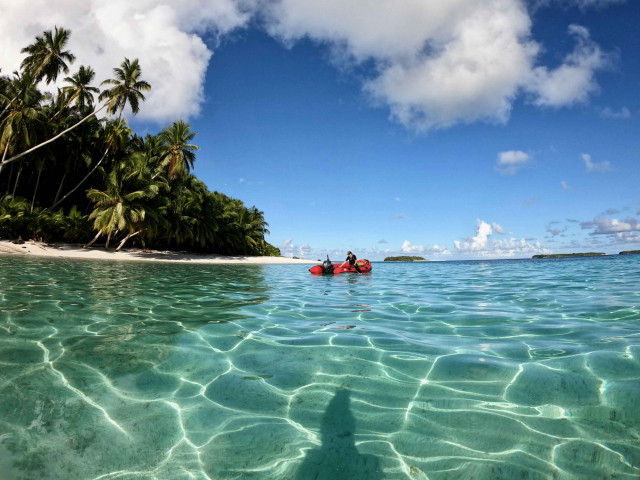Carbonate sediments
The production of reef structure by coral communities and the generation, transport and accumulation of carbonate sediments by other calcifying and bioeroding organisms are essential drivers of tropical beach and island formation and maintenance. Coral reefs are increasingly impacted by climate change and local human pressures, which may lead to alterations in reef communities and thus diminish the important geo-ecological functions they provide.
The northern atolls of the Chagos Archipelago in the central Indian Ocean have been exposed to minimal local impacts for the last 50 years and thus allow to study reef communities in the absence of direct human disturbances. However, two major global heating events in 1997/1998 and 2015/2016 caused wide-spread coral mortality.
Patterns of sediment production
In order to examine spatial and temporal differences in sedimentary carbonate production states, this project quantifies the contribution of different sediment producers to reef and island sediments at multiple sites across three atolls. We look at patterns in sediment composition and production across reef zones and aim to explore the impacts of (micro-)benthic community structures at sites with distinct trends of reef recovery since the 2015/2016 bleaching event, as well as differences in seabird derived nutrient input.
Variations in the foraminiferal community
Large benthic foraminifera are photosymbiotic calcifiers that may locally dominate carbonate production and are commonly used as bioindicators for recent and past environmental conditions. A main focus of this project is thus to quantify their contribution to local sediment budgets. We will also compare present foraminiferal communities to a dataset from the 1970s to detect long-term changes in composition at Peros Banhos atoll.
Project partners |
|---|
|
Prof. Dr. Chris Perry and Dr. Ines Lange (University of Exeter) Joanna Harris (University of Plymouth) Dr. Andrew Mogg (Tritonia Scientific) |





